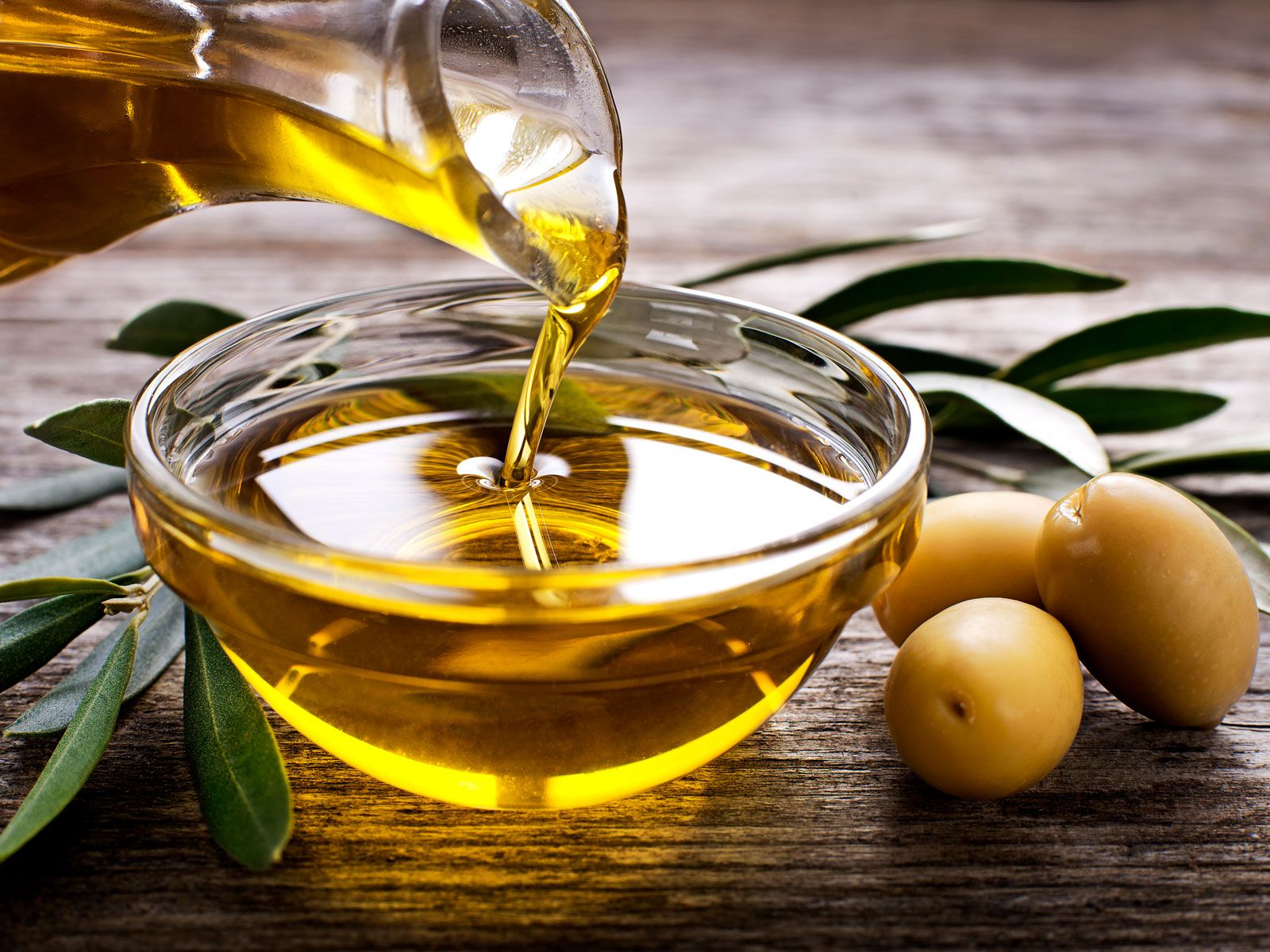
When it comes to cooking and culinary delights, few ingredients are as versatile and beloved as extra virgin olive oil. This “liquid gold” has been a staple in Mediterranean cuisine for centuries and is known for its rich flavor, health benefits, and numerous culinary applications.
In this article, we will explore 13 fascinating facts about extra virgin olive oil that will not only enhance your knowledge but also make you appreciate this incredible ingredient even more. From its origins and production process to its nutritional value and culinary uses, we’ll delve into every aspect of extra virgin olive oil to help you understand why it deserves a prominent spot in your kitchen.
So, without further ado, let’s dive into the world of extra virgin olive oil and uncover some interesting and surprising tidbits about this remarkable ingredient.
Key Takeaways:
- Extra virgin olive oil is rich in heart-healthy fats and antioxidants, making it a versatile and flavorful addition to your diet. Look for certifications like PDO and PGI to ensure its authenticity and quality.
- The olive tree, sustainable farming practices, and cultural significance make extra virgin olive oil a symbol of health, tradition, and abundance in Mediterranean cultures. Incorporating it into your diet adds both flavor and nourishment.
The Harvesting Process
Extra virgin olive oil is made from the first cold pressing of olives, ensuring maximum freshness and flavor. The olives are carefully handpicked at the peak of ripeness to preserve their quality.
Health Benefits
Extra virgin olive oil is rich in monounsaturated fats, which are known to promote heart health. It is also loaded with antioxidants that help fight inflammation and protect against chronic diseases.
Varied Flavors
Extra virgin olive oil comes in a range of flavors, from mild and buttery to robust and peppery. This wide variety allows for versatile culinary uses, enhancing the taste of dishes in unique ways.
Essential Nutrients
In addition to healthy fats, extra virgin olive oil contains essential nutrients such as vitamin E and vitamin K. These nutrients play a crucial role in maintaining overall health and well-being.
High Smoke Point
Unlike other cooking oils, extra virgin olive oil has a high smoke point, making it suitable for various cooking methods like sautéing, stir-frying, and even deep-frying.
Olive Oil Grades
Extra virgin olive oil is the highest quality olive oil, obtained directly from olives and processed without the use of chemicals. Other grades include virgin olive oil, olive oil, and light olive oil.
Long Shelf Life
Due to its high antioxidant content, extra virgin olive oil has a longer shelf life compared to other edible oils. Proper storage away from heat and light can further extend its freshness.
Mediterranean Diet Staple
Extra virgin olive oil is a key component of the Mediterranean diet, which is renowned for its health benefits. It is frequently used in cooking, dressings, and dips in this traditional cuisine.
Culinary Versatility
From salads to pasta, from roasted vegetables to bread dipping, extra virgin olive oil can enhance the flavor of numerous dishes, adding a delightful touch to various cuisines around the world.
Label Certification
To ensure the authenticity and quality of extra virgin olive oil, look for certifications such as PDO (Protected Designation of Origin) and PGI (Protected Geographical Indication) on the label.
Sustainable Farming
Many olive oil producers prioritize sustainable farming practices, including organic cultivation and the use of environmentally friendly methods. This ensures the preservation of nature and ecosystems.
The Olive Oil Tree
The olive tree, scientifically known as Olea europaea, is an evergreen tree native to the Mediterranean region. It can live for hundreds of years and produce olives for many generations.
Cultural Significance
Extra virgin olive oil has been deeply intertwined with Mediterranean cultures for centuries. It holds immense cultural significance and is often regarded as a symbol of health, abundance, and tradition.
These 13 facts about extra virgin olive oil highlight its remarkable qualities, from its health benefits to its culinary versatility. Incorporating this nourishing oil into your diet not only adds a burst of flavor, but also contributes to a well-balanced and healthy lifestyle.
Conclusion
In conclusion, extra virgin olive oil is not just a delicious addition to your meals, but it also offers numerous health benefits. From its high antioxidant content to its ability to reduce inflammation and support heart health, there are plenty of reasons to incorporate this versatile oil into your diet. Whether you use it for cooking, salad dressings, or simply as a dipping sauce, extra virgin olive oil is a culinary staple that can enhance both the flavor and the nutritional value of your meals. So, go ahead and make the switch to extra virgin olive oil and enjoy its many benefits for your overall well-being.
FAQs
1. What is extra virgin olive oil?
Extra virgin olive oil is the highest quality and least processed form of olive oil. It is made by pressing olives without the use of chemicals or heat, resulting in a pure and flavorful oil.
2. How is extra virgin olive oil different from regular olive oil?
Regular olive oil goes through refining and processing methods that strip away its natural flavors and beneficial compounds. Extra virgin olive oil, on the other hand, retains all the nutrients and antioxidants found in olives.
3. How should I store extra virgin olive oil?
To preserve its quality, extra virgin olive oil should be stored in a cool, dark place away from direct sunlight and heat. It is best to keep it tightly sealed to prevent exposure to air.
4. Can I use extra virgin olive oil for cooking?
Absolutely! Extra virgin olive oil is great for sautéing, roasting, and even deep-frying. Its high smoke point makes it suitable for various cooking methods, while adding a delicate and rich flavor to your dishes.
5. Is extra virgin olive oil good for my health?
Yes, extra virgin olive oil is packed with healthy monounsaturated fats and antioxidants. It has been linked to reduced risk of heart disease, improved brain function, and lower inflammation levels in the body.
6. Can I use extra virgin olive oil as a salad dressing?
Absolutely! Extra virgin olive oil makes a wonderful base for homemade salad dressings. You can mix it with vinegar or lemon juice, add herbs and spices, and create delicious dressings to enhance the flavors of your salads.
7. Is it okay to use extra virgin olive oil for baking?
Yes, you can use extra virgin olive oil for baking as a healthier alternative to butter or other oils. However, keep in mind that its distinct flavor may slightly affect the taste of your baked goods.
8. Can extra virgin olive oil help with weight loss?
While extra virgin olive oil is calorie-dense, it can still be part of a healthy weight loss diet. Its healthy fats and ability to increase feelings of fullness may help control appetite and promote weight loss when consumed in moderation.
9. Is there a difference between cold-pressed and extra virgin olive oil?
Cold-pressed olive oil refers to the method of extraction, where no heat is applied during pressing. Extra virgin olive oil, on the other hand, goes through strict quality testing to ensure it meets specific chemical and sensory standards.
10. Are all brands of extra virgin olive oil the same?
No, not all brands of extra virgin olive oil are the same. There can be variations in flavor, quality, and production methods. Look for reputable brands that have seals indicating certification by recognized organizations.
Exploring extra virgin olive oil's fascinating facts whets appetites for culinary adventures. Why not embark on a journey to find the best olive oil or discover top-tier teas steeped in flavor? Uncover more tantalizing tidbits about beloved ingredients, expanding your gastronomic horizons with each delightful read.
Was this page helpful?
Our commitment to delivering trustworthy and engaging content is at the heart of what we do. Each fact on our site is contributed by real users like you, bringing a wealth of diverse insights and information. To ensure the highest standards of accuracy and reliability, our dedicated editors meticulously review each submission. This process guarantees that the facts we share are not only fascinating but also credible. Trust in our commitment to quality and authenticity as you explore and learn with us.


